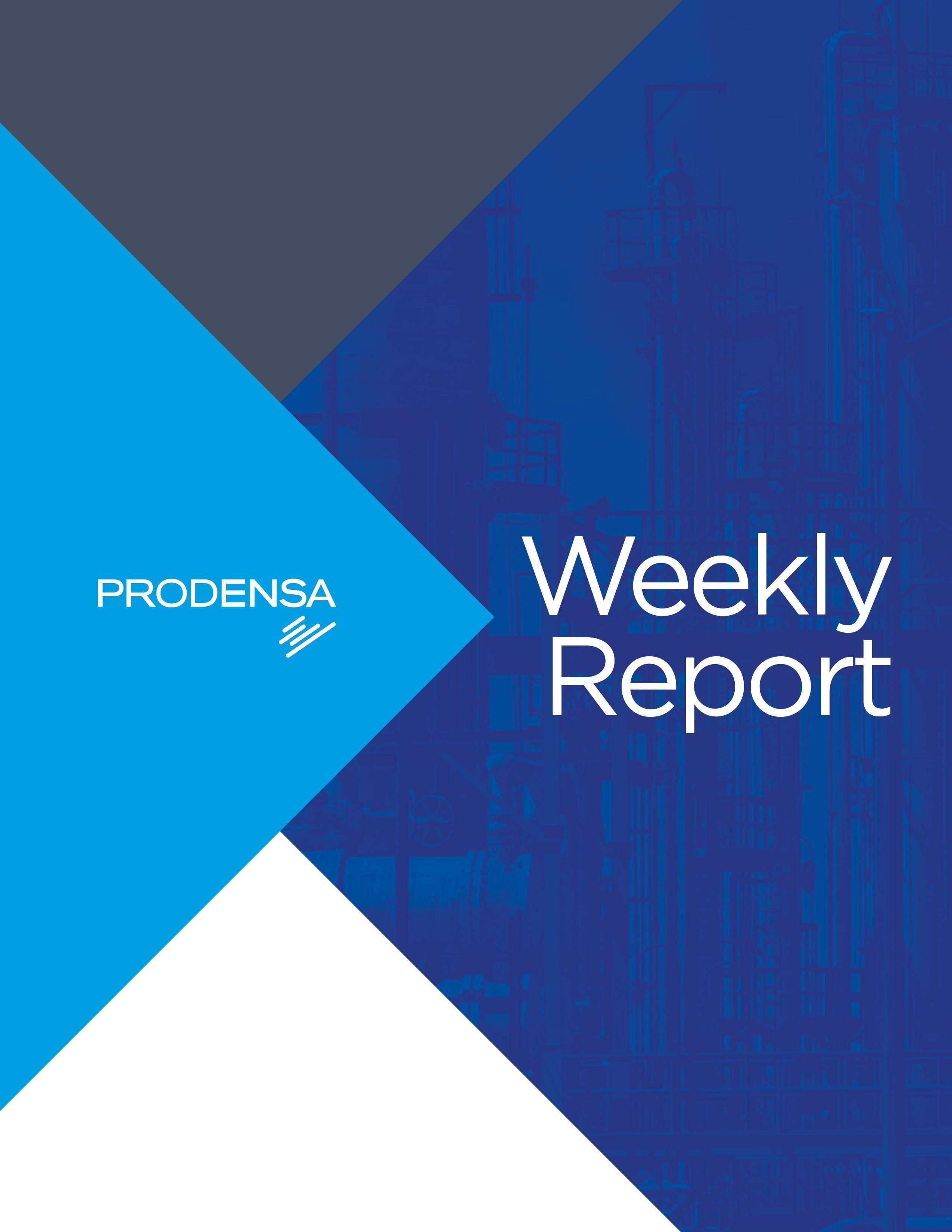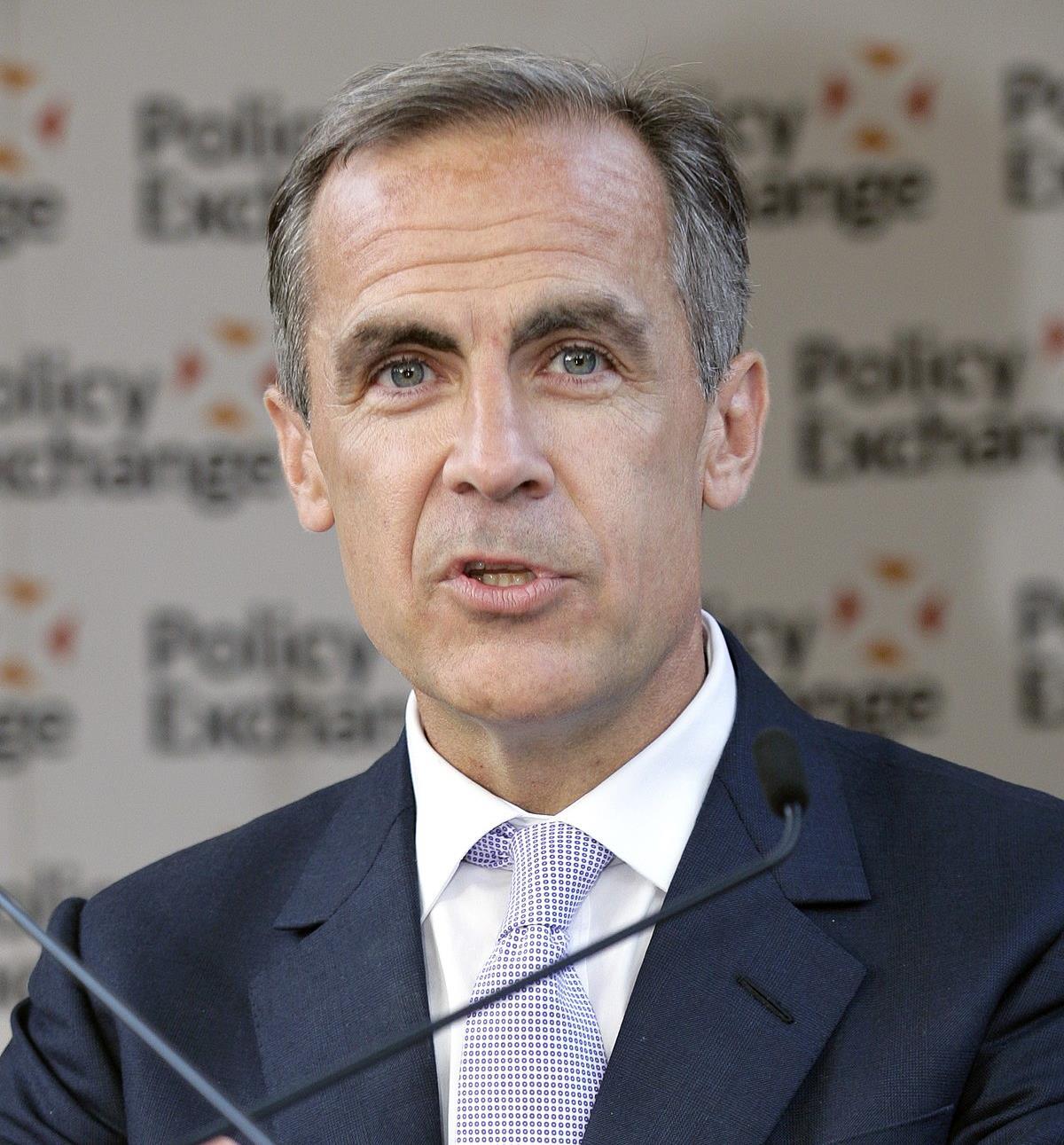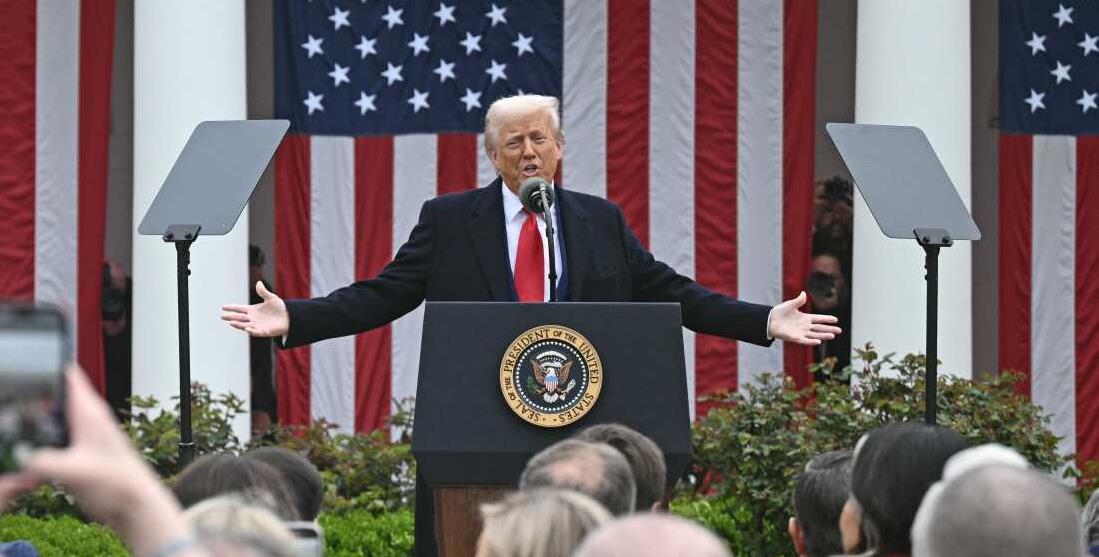
March 29 – April 4, 2025



March 29 – April 4, 2025

Mexican President Claudia Sheinbaum and Canadian Prime Minister Mark Carney reaffirmed their commitment to strengthening the USMCA amid escalating U.S. protectionism In a phone call, both leaders emphasized the importance of economic integration while defending national sovereignty.
The discussion occurred ahead of President Trump’s announcement of new reciprocal tariffs, which could disrupt trade Although Trump temporarily exempted North American auto parts, broader trade restrictions threaten supply chains Carney condemned “unjustified trade measures,” signaling Canada’s intent to counter them The situation raises concerns about USMCA’s future, as heightened tariffs may undermine regional competitiveness and strain diplomatic relations Mexico and Canada seek to maintain open trade channels, anticipating challenges from Trump’s economic policies
Source: EL UNIVERSAL

On April 2, 2025, President Donald Trump declared "Liberation Day" and unveiled his "America First" trade policies, imposing sweeping reciprocal tariffs Under an executive order invoking the International Emergency Economic Powers Act (IEEPA), the U.S. will impose a 10% universal baseline tariff on imports, with higher tariffs on key trade partners based on trade deficits and non-monetary barriers China faces a 34% tariff, the EU 20%, Japan 24%, and South Korea 25%, among others Canada and Mexico are exempt from the new reciprocal tariffs but remain affected by previously announced auto, steel, and aluminum tariffs under USMCA rules Mexico’s President Sheinbaum reaffirmed the Plan México strategy to support the national economy and strengthen key industries
Immediate global retaliation has begun, with China imposing tariffs on U.S. agricultural and energy products, the EU announcing countermeasures on €18 billion of U S goods, and Canada implementing new tariffs totaling over $185 billion Mexico has not announced direct retaliation but is reviewing industrial policies The U S established an "External Revenue Service" to enforce tariffs, which will remain until Trump deems trade imbalances resolved Markets face uncertainty, inflation risks, and global trade tensions are escalating Analysts anticipate legal disputes at the WTO and among USMCA/EU partners, while Trump officials signal little room for negotiation
Source: NEW YORK TIMES

A group of U S lawmakers urged President Trump to renegotiate the USMCA during its six-year review, citing its failure to protect American workers and industries. They highlighted rising trade deficits, offshoring threats, and Chinese firms exploiting USMCA loopholes Proposed reforms include strengthening labor protections, increasing regional manufacturing content, adjusting tariff policies, and eliminating restrictions on "Buy American" provisions. Lawmakers also seek changes in digital trade, pharmaceutical regulations, and agricultural policies The letter emphasizes Congress' role in trade negotiations and calls for transparency in the renegotiation process, potentially leading to stricter trade rules and increased domestic production incentives.
Source: BLOOMBERG
Mexican President Claudia Sheinbaum presented the latest progress on Plan México following U.S. President Donald Trump’s announcement of new tariffs on Mexican exports. Aimed at strengthening economic resilience, the plan includes 18 key objectives to boost Mexico’s internal market, reduce dependence on imports, and enhance social welfare Among the priorities is food sovereignty, with plans to increase white corn, bean, rice, and milk production while supporting small producers. Energy sovereignty measures include expanding clean fuel production, reducing gas imports, and increasing the national power grid’s capacity Infrastructure projects will improve highways, expand train routes, and modernize airports, creating up to one million jobs
Housing initiatives will expand affordable housing and home improvement programs Manufacturing goals focus on revitalizing industries such as steel, semiconductors, and pharmaceuticals, while vehicle production policies encourage energy-efficient innovation. Public procurement laws will prioritize domestic suppliers, and new regulations will simplify investment processes, supporting a $200 billion investment portfolio The plan also includes job creation programs, tax incentives for development zones, and increased investment in science and technology, particularly in AI, satellites, and EVs. Social policies will expand scholarships, pensions, and worker benefits, with a minimum wage increase ensuring better living standards Sheinbaum’s Plan México combines economic strategy with social welfare to enhance Mexico’s self-sufficiency, competitiveness, and resilience amid global trade tensions.
Source: EL FINANCIERO

Sheinbaum announced a historic record of formal employment in Mexico, with 22 4 million registered jobs in March 2025. Additionally, she reported a 19.7% increase in tax revenue in the first quarter compared to 2024, reaching 1 7 trillion pesos A total of 226,731 jobs were created from January to March, with 34,179 in March alone The president attributed these achievements to the "moral economy" and "Mexican Humanism." She also highlighted the SAT’s efforts and public trust in the government. Finally, she reaffirmed that economic stability is reflected in employment, tax revenue, and inflation control
Source: REGENERACIÓN

Mexico’s Ministry of Finance (SHCP) revised its 2025 GDP growth estimate to a range of 1 5–2 3%, down from the previous 2 0–3 0% projection The economy is expected to be driven by domestic consumption, job creation, and strategic investments
However, private sector analysts forecast slower growth, with some predicting a contraction due to U S trade policies Despite this, SHCP anticipates higher revenues and expenditures, supported by oil-related income and tax reforms Fiscal consolidation efforts will continue, with a public sector deficit expected between 3 9% and 4% of GDP For 2026, SHCP projects growth between 1.5% and 2 5%, supported by reduced global uncertainty Key fiscal strategies include enhanced revenue collection, infrastructure investment, and social programs
Source: EL ECONOMISTA
León's new Pocket Park industrial park, covering 23 hectares, aims to attract both national and international companies, creating around 2,500 jobs The park offers strategic advantages like proximity to residential areas, skilled labor, and advanced security systems This initiative reflects Guanajuato’s investment-friendly policies and has already secured significant investments
Source: MEXICO INDUSTRY

BILL ON TAX INCENTIVES FOR EMPLOYERS HIRING RETURNED OR DEPORTED MIGRANTS
Presented by: Dip. Eduardo Castillo López (Pue - MORENA)
Objective: Proposes a tax incentive for employers who hire returned or deported migrants The incentive would consist of a 25% deduction from the salary paid to these workers, provided they are returned or deported to Mexico and have the appropriate documentation
Status: 2025-04-01 - Published in the Parliamentary Gazette
BILL ON WORK-LIFE BALANCE AND DIGITAL DISCONNECTION
Presented by: Dip Eduardo Castillo López (Pue - MORENA)
Objective: Establishes that work must ensure a balance between personal and professional life, guarantees the right to digital disconnection, and encourages workers' participation in decisions affecting their work environment
Status: 2025-04-01 - Published in the Parliamentary Gazette
BILL TO AMEND ARTICLES 60 AND 61 OF THE FEDERAL LABOR LAW
Presented by: Dip José Alberto Benavides Castañeda (CDMX - PT)
Objective: Reduces the maximum working hours per shift, establishing a uniform limit of seven hours for daytime, nighttime, and mixed shifts.
Status: 2025-04-02 - Published in the Parliamentary Gazette
BILL TO AMEND ARTICLE 79 OF THE AMPARO LAW
Presented by: Sen Alberto Anaya Gutiérrez (LNal - PT)
Objective: Mandates that authorities overseeing amparo trials must compensate for deficiencies in legal arguments when the case involves environmental protection and biodiversity
Status: 2025-04-02 - Published in the Parliamentary Gazette
BILL TO AMEND VARIOUS PROVISIONS OF THE FEDERAL CRIMINAL CODE AND THE NATIONAL CODE OF CRIMINAL PROCEDURE TO SANCTION DIGITAL IDENTITY THEFT
Presented by: Dip María Soledad Luévano Cantú (Zac - MORENA)
Objective: Allows the Public Prosecutor to request immediate judicial authorization to freeze bank accounts linked to digital identity fraud. The judge must decide within 12 hours, and financial institutions must comply within 24 hours If the fraud is confirmed, funds will be returned to the victim within 15 business days Authorities will receive training, and specialized cybercrime units may be created Congress must harmonize local laws on cybercrime within 12 months
Status: 2025-04-01 - Published in the Parliamentary Gazette
BILL TO REFORM ENVIRONMENTAL BALANCE LAW AND FEDERAL PENAL CODE
Presented by: Sen. Cynthia Iliana López Castro (CDMX - MORENA)
Objective: Mandates businesses operating in Mexico to submit an annual Sustainability Report detailing measures to prevent, mitigate, or compensate environmental damage Requires periodic updates to an Environmental Risk Management Plan, covering emissions, waste, resource use, and contingencies Noncompliance results in fines
Status: 2025-04-01 - Published in the Parliamentary Gazette
BILL TO CREATE THE GENERAL LAW ON CIRCULAR ECONOMY
Presented by: Sen. Waldo Fernández González (NL - PVEM)
Objective: Establishes the principles of national policy on circular economy and promotes a National Circular Economy Strategy in line with the National Development Plan Encourages sustainable production practices, including redesign, reuse, repair, recycling, and waste recovery Introduces the Green Label, identifying products and services with reduced environmental impact Mandates businesses to facilitate product recovery and proper waste management
Status: 2025-04-01 - Published in the Parliamentary Gazette
